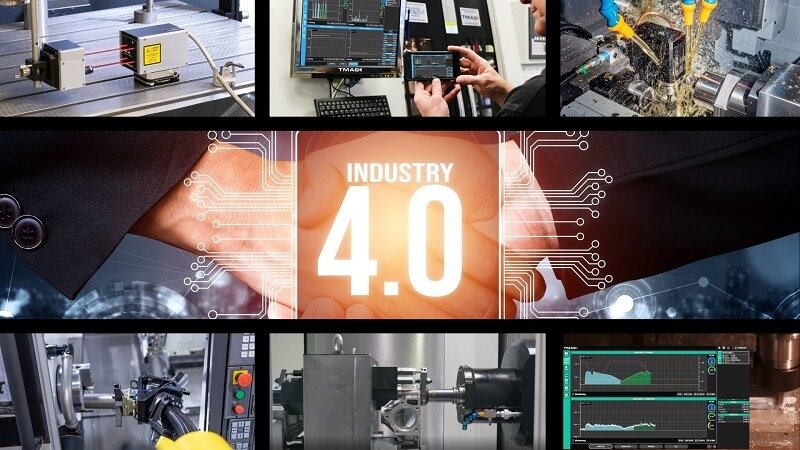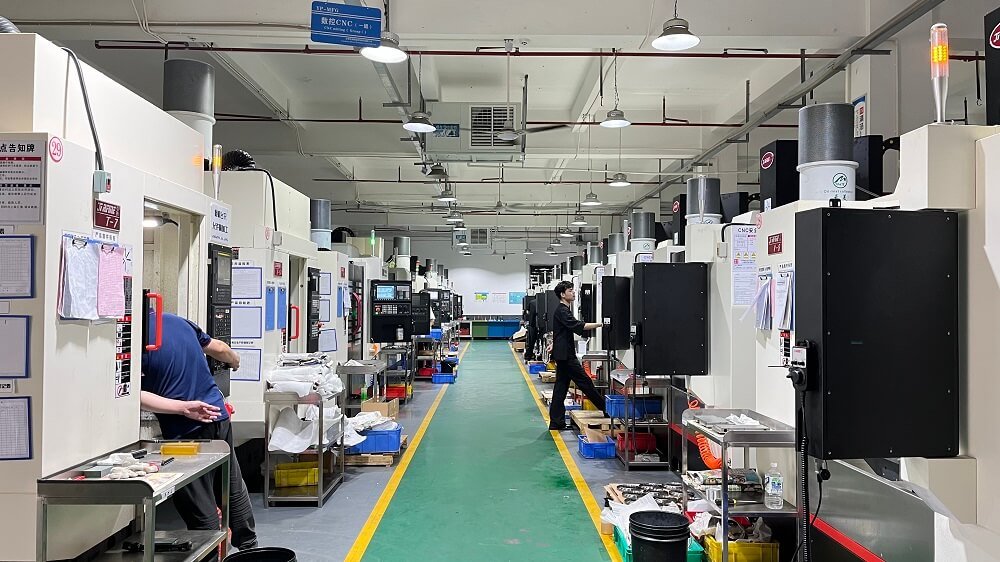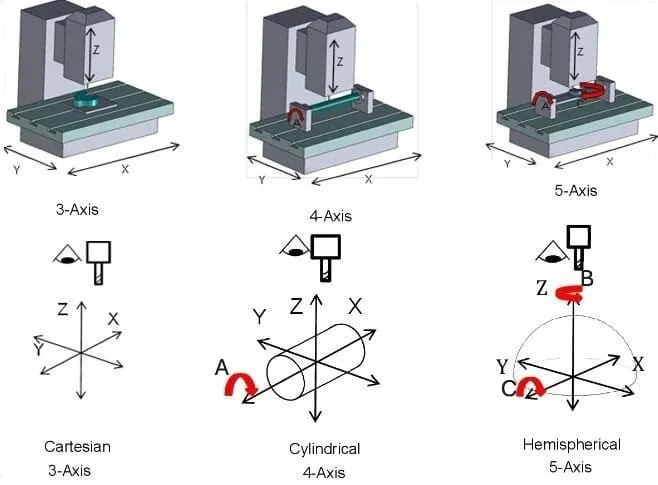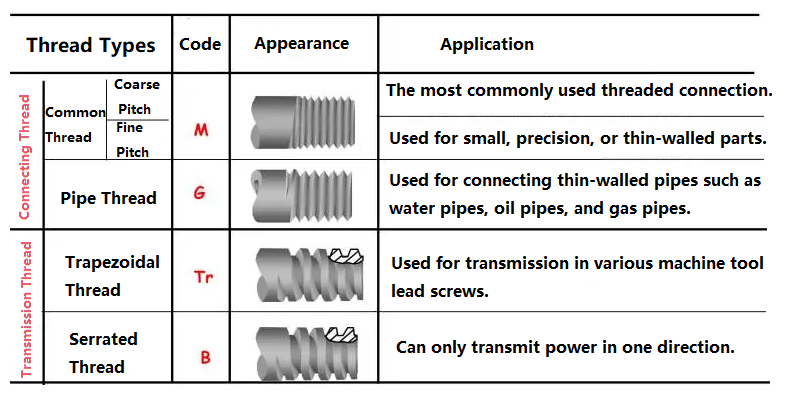As the wave of Industry 4.0 continues to deepen, the manufacturing industry is undergoing a profound transformation toward intelligence and digitalization. As a cornerstone of modern manufacturing, CNC machining must proactively embrace this trend, transitioning toward intelligent, digital, and networked production models. This article explores in depth how CNC machining can effectively adapt to the Industry 4.0 framework, enhance competitiveness, and achieve sustainable development.

1. Applying Intelligent CNC Systems
The core drivers of Industry 4.0 are intelligence and automation. To adapt to this shift, CNC machining must adopt intelligent CNC systems that enable more efficient, precise, and autonomous production.
- Adaptive Control Technology: By integrating sensors and real-time feedback, CNC machines can dynamically monitor machining conditions and automatically optimize cutting parameters (e.g., spindle speed, feed rate), significantly improving consistency and extending tool life.
- Smart Diagnostics and Predictive Maintenance: Leveraging machine learning, systems can identify potential failures in advance, schedule maintenance proactively, minimize unplanned downtime, and maximize overall equipment effectiveness (OEE).
2. Enabling Data-Driven Production Optimization
In the Industry 4.0 architecture, data is a critical production asset. CNC machining must fully leverage IoT and big data technologies to establish end-to-end data connectivity and drive continuous optimization.
- Real-Time Data Acquisition: Machine-mounted sensors capture key parameters such as vibration, temperature, and cutting force, creating a robust data foundation.
- Data Analytics and Process Optimization: AI and machine learning analyze historical and real-time data to identify bottlenecks, optimize cutting parameters, and enhance quality and efficiency.
- Advanced Predictive Maintenance: Using operational data to forecast failures shifts maintenance from reactive to proactive, lowering costs and improving reliability.
3. Driving Networked and Collaborative Manufacturing
Industry 4.0 emphasizes connectivity. Achieving interoperability between CNC machines and other production units (e.g., robots, AGVs) is key to building flexible manufacturing networks.
- IIoT Platform Integration: IIoT enables seamless data sharing and task coordination across CNC machines, loading robots, and automated logistics systems.
- Cloud-Based Integration and Distributed Manufacturing: Cloud platforms allow centralized task management, scheduling, and monitoring, supporting remote instructions and real-time status tracking.
- Remote Monitoring and Control: Engineers can remotely access, troubleshoot, and optimize CNC machines, improving flexibility and responsiveness in production management.
4. Building Flexible Manufacturing Systems (FMS)
Growing demand for customization requires manufacturing systems to be highly flexible. CNC machining must develop flexible production capabilities to support multi-variety, small-batch production.
- Modular Machine and Fixture Design: Modular machine structures and quick-change fixtures/tooling significantly reduce setup times.
- Integrated Automated Production Lines: Combining CNC machines with robots and AGVs creates highly automated lines capable of lights-out manufacturing.
- Intelligent Scheduling Systems: Advanced algorithms dynamically optimize scheduling, respond to order changes, and maximize resource utilization.
5. Enhancing Human-Machine Collaboration and Skills
Industry 4.0 does not eliminate human labor but augments it through collaboration. CNC machining must emphasize workforce upskilling and user-friendly system interaction.
- Collaborative Robots (Cobots): Safe-to-use cobots work alongside operators on tasks such as precision assembly and material handling.
- VR/AR for Training and Maintenance: Virtual and augmented reality enhance training in operation, programming, and maintenance, improving skills and efficiency.
- Smart Assistance Systems: Visualized terminals provide real-time guidance, alerts, and decision support, reducing human error and improving quality.
6. Promoting Green Manufacturing and Sustainability
Industry 4.0 also focuses on balancing production with environmental responsibility. CNC machining, being energy-intensive, must prioritize sustainable practices.
- Energy Management and Efficiency: Optimizing processes and scheduling reduces idle energy consumption and improves utilization.
- Eco-Friendly Cutting Processes: Techniques like minimum quantity lubrication (MQL) and cryogenic machining, combined with biodegradable coolants, minimize environmental impact.
- Waste Recycling and Resource Recovery: Systems for recycling chips, coolants, and by-products foster circular economy practices.
7. Strengthening Cybersecurity and Data Protection
As CNC systems become increasingly connected, cybersecurity risks rise. Protecting data and systems is indispensable for adapting to Industry 4.0.
- End-to-End Data Encryption: Ensures secure transmission and storage of production data, preventing breaches and tampering.
- Multi-Level Access Control: Role-based access ensures only authorized personnel can operate critical systems.
- Regular Security Audits and Threat Detection: Continuous monitoring, vulnerability scans, and penetration testing safeguard production environments.
Conclusion
In summary, for CNC machining to adapt to Industry 4.0, systematic upgrades in both technology and management are essential. From intelligent CNC systems and data-driven optimization to networked and flexible manufacturing, the industry must also integrate human-machine collaboration, sustainable practices, and robust cybersecurity. By fully embracing the principles of Industry 4.0, CNC machining can not only improve efficiency and quality but also secure a vital competitive edge in the next wave of manufacturing transformation.






